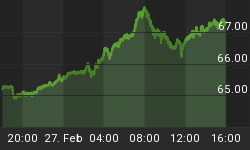Nikkei Business, 23rd February 2004
The fall of communism has not brought an end to ideological disputes about economics. European and American politicians routinely rubbish each others' models and recently the temperature has risen again, as the recovery of the US economy has brought forth a bout of self-congratulation from key members of the Federal Reserve. The imminence of the US Presidential Election suggests that a torrent of self praise is only just starting. The Republicans are unlikely to miss the opportunity to congratulate themselves for the successful management of their economy and to contrast it with the weakness of Europe, while the Democrats will be wary of rubbishing these claims for fear of appearing unpatriotic.
To the uncommitted observer, it looks as if both Europe and America are determined to deny their mistakes and are thus doomed to repeat them.
High minimum wages, restrictions on working hours and the high cost and difficulty in making employees redundant, have all contributed to the poor employment records of leading European countries. According to the OECD, the proportion of those of working age who had jobs in 2003 was only 63% in France, compared with 73.5% in Japan and 71% in the US. While some halting progress is being made in Germany towards labour market reforms, commissioner Anna Diamantopoulou remains adamantly opposed to steps that might ease the European Union's deplorable record on employment, where her own country Greece stands out as one of the worst examples, with less than 58% of its work force being employed.
But Europeans are not the only people who refuse to learn from their past mistakes. Remarks made by Federal Reserve Chairman Alan Greenspan and Governor Ben Bernanke, at the American Economic Association meeting at the beginning of January, were marked by a refusal to learn the lessons of history. The common thread of both key speeches was a denial that the Fed's failure even to attempt to restrain the bubble which burst in 2000 was a mistake.
It has often been remarked that those who fail to learn the lessons of history are doomed to repeat their errors and, due to the frequency with which this occurs, it has been said with almost as much truth as wit that "history teaches us that it teaches us nothing".
By denying that they should have sought to restrain the bubble, the Federal Reserve's Governors risk repeating their mistakes. Although the stock market is well below its peak level, that level was so extreme that Wall Street appears once again as over-valued as it has been in all other stock market booms, such as those of 1929 and 1968.
The element of denial in the Federal Reserve's attitude is underlined by the way in which the defence of allowing a bubble is changing. Previously the claim was that central banks should ignore changes in asset prices. However, part of the complaisance today is self-congratulation about the interventions to stabilise the stock market after its falls in 1987, 1998 and 2001. The asymmetry of the US central banks' policy is now affirmed. It seems that liquidity should be eased to prevent sharp falls, but it should not be tightened to avoid rapid rises.
Such an attitude is almost a guarantee of future bubbles and the speed with which the current one has built up is thus less surprising than it would otherwise have been. However, when the current bubble bursts, the Fed will be faced with even greater problems that it was after the last one.
It seems likely that monetary easing operates in large measure through its effect on asset prices, which encourages consumption rather than savings. But household savings remain at an incredibly low level, averaging only 1.7% of disposable income over the past three months, compared with a long-term average of about 8%. When the last bubble broke, the Federal Reserve's easy money policy kept the household savings rate down, but it had considerable help from mortgage refinancing driven by a rising bond market. With bond prices at very low levels, it is unlikely to have the same help next time.
It is also unlikely to have the sheer good luck which arose from the decision of the incoming Republican Administration to cut taxes when it was elected in 2000.
This kind of economic stimulus is usually introduced after an economy has already fallen into recession. On this occasion, however, the motive was different, with the result that the timing was much better. The Republicans believed that the US budget was in long-term surplus and wanted to cut taxes before the Democrats got a chance to boost Government spending. The result was that the economy received a boost at the start of the downturn and not after it had occurred. This contributed greatly to making the recession a relatively mild one.
The apparent refusal of both Americans and Europeans to face up to the possibility of past error is sad and dangerous. There is a risk that the next Wall Street crash may come before Europe has staged any real recovery from its last recession and when the Federal Reserve may be unable to ameliorate the consequent US recession to the same extent as the last one.















